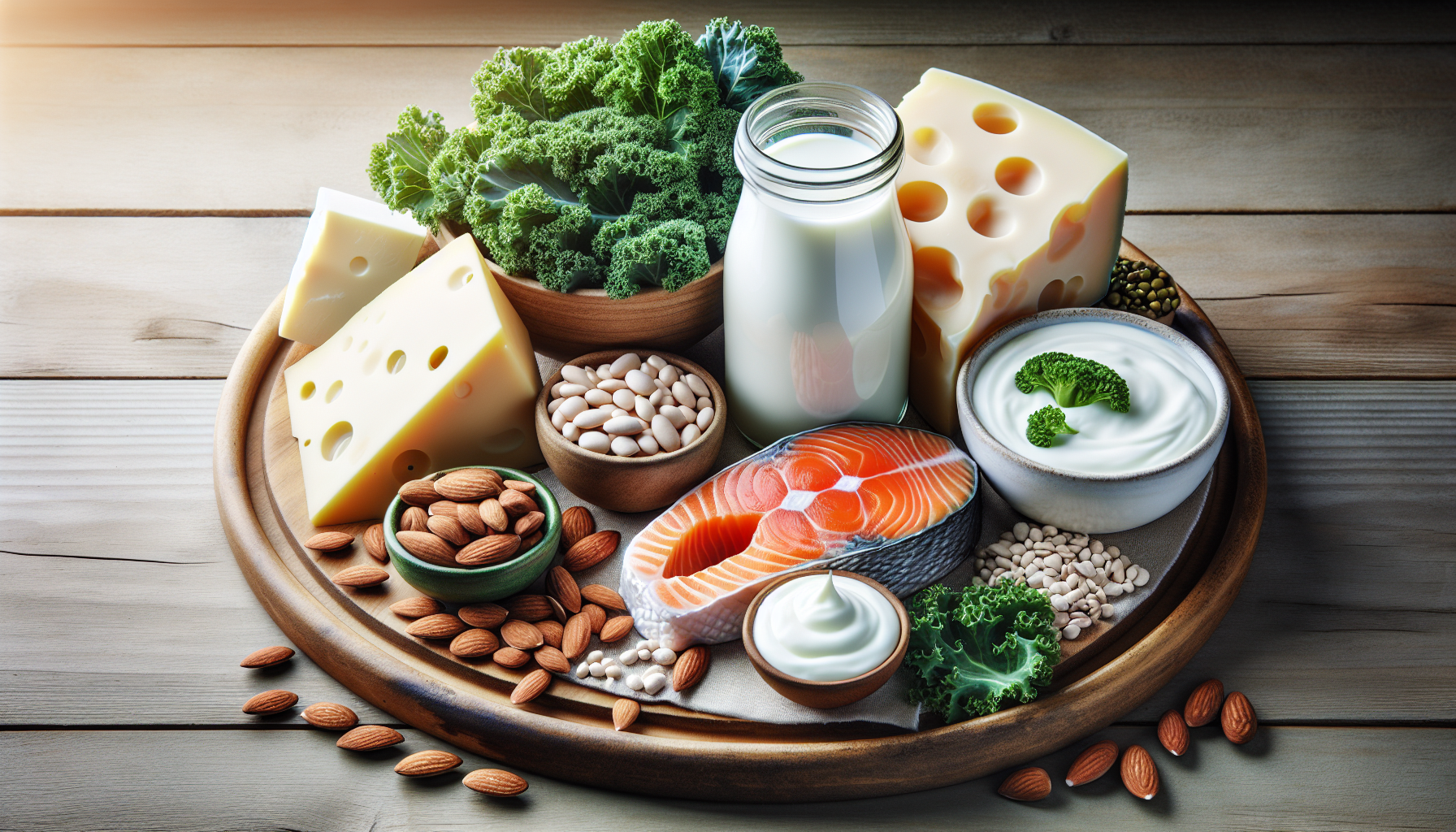Our bones are the framework of our body, providing structure, safeguarding organs, anchoring muscles, and storing calcium—a critical mineral for maintaining bone health throughout our lives. As we age, our bones can become less dense and strong, which can lead to conditions such as osteoporosis, making it vital to maintain a diet rich in calcium. This article explores the importance of calcium in our diet, highlights calcium-rich foods, and suggests lifestyle strategies to optimize bone health.
The Critical Role of Calcium in Bone Health
Calcium is the most abundant mineral in the body and is essential for building and maintaining strong bones. The body also utilizes calcium for other vital functions such as muscle function, nerve transmission, and blood clotting. However, if dietary intake is insufficient, the body will withdraw calcium from bones to maintain these functions, which can weaken bones over time.
For those seeking more information on the broader topic of bone health, Avix Health’s Bone Health section is a comprehensive resource.
Calcium Needs Across Different Life Stages
Our calcium needs change throughout life. The National Institutes of Health recommends higher calcium intake during childhood and adolescence when bones are growing rapidly, during pregnancy and breastfeeding, and again in older adults, when the ability to absorb calcium decreases.
- Children (1-3 years): 700 mg/day
- Children (4-8 years): 1,000 mg/day
- Adolescents (9-18 years): 1,300 mg/day
- Adults (19-50 years): 1,000 mg/day
- Women over 50 and men over 70: 1,200 mg/day
Top Calcium-Rich Foods
To meet these needs, incorporate a variety of calcium-rich foods into your diet. Here are some of the best sources:
Dairy Products
Dairy products such as milk, cheese, and yogurt are excellent sources of calcium. For example, one cup of low-fat milk can provide about 300 mg of calcium.
Leafy Greens
Vegetables like kale, collard greens, and spinach contain significant amounts of calcium. One cup of cooked collard greens offers about 266 mg.
Fortified Foods
Many plant-based milks and cereals are fortified with calcium. Always check the nutrition label to confirm the actual calcium content.
Fish with Bones
Canned sardines and salmon with bones are packed with calcium. A 3-ounce serving of canned salmon with bones has around 181 mg of calcium.
Nuts and Seeds
Almonds, chia seeds, and sesame seeds have considerable amounts of calcium. Just a tablespoon of sesame seeds contains about 88 mg.
Legumes
Beans and lentils also contribute to calcium intake. One cup of cooked white beans boasts around 161 mg.
Fruits
Some fruits, such as oranges and figs, have calcium. One medium orange provides about 60 mg of calcium.
Enhancing Calcium Absorption
To maximize the benefits of these calcium-rich foods, it’s important to consider factors that enhance calcium absorption:
Vitamin D
Vitamin D plays a crucial role in calcium absorption. Sun exposure is a natural source, but it can also be found in foods like fatty fish and fortified dairy products. For more details on the role of Vitamin D in bone health, refer to The Role of Vitamin D in Bone Regeneration.
Regular Exercise
Weight-bearing exercises like walking, running, and strength training can help build and maintain bone density. Find out more about how exercise contributes to bone health in The Role of Exercise in Preventing Bone Loss.
Avoid Excess Sodium
High sodium intake can increase calcium loss through the kidneys. It’s advisable to moderate sodium consumption to ensure calcium retention.
Limit Caffeine and Alcohol Intake
Caffeine and alcohol can impair calcium absorption if consumed in large amounts. Moderation is key.
Addressing Dietary Restrictions
For individuals with dietary restrictions such as lactose intolerance or those following a vegan diet, obtaining adequate calcium can be challenging. Here’s how to navigate these restrictions:
Lactose Intolerance
Explore lactose-free dairy products or calcium-fortified alternatives like almond, soy, or rice milk.
Vegan Diet
Focus on plant-based calcium sources like leafy greens, fortified plant milks, tofu, and tempeh. The website The Vegan Society offers additional resources on plant-based nutrition.
The Importance of a Balanced Diet for Bone Health
While calcium is crucial, it’s not the only nutrient that supports bone health. Magnesium, phosphorus, and vitamins K and D also play vital roles. A balanced diet that includes a variety of nutrients is essential. For insights into how magnesium contributes to bone formation, read The Importance of Magnesium in Bone Formation.
Monitoring and Managing Bone Health
Regular check-ups and bone density scans can help monitor bone health, especially for those at risk of osteoporosis. Additionally, certain medications and supplements can support bone health. However, it’s important to consult with healthcare professionals before starting any new medication or supplement regimen.
For a more in-depth look at the use of supplements for bone health, Avix Health’s Medication & Supplements section provides valuable information.
Conclusion
Optimizing bone health is a lifelong journey that requires a combination of a calcium-rich diet, lifestyle choices that promote bone density, and regular health screenings. By understanding the sources of calcium and how to incorporate them into your diet, you can take proactive steps to maintain strong bones at any age.
Remember, the path to optimal bone health is unique for each individual, and what works for one person may not be suitable for another. It’s always recommended to seek personalized advice from healthcare professionals to create a tailored plan that fits your specific needs and circumstances.
By incorporating the guidance from this article and staying informed through trusted resources, you’re setting the foundation for a stronger, healthier future.



